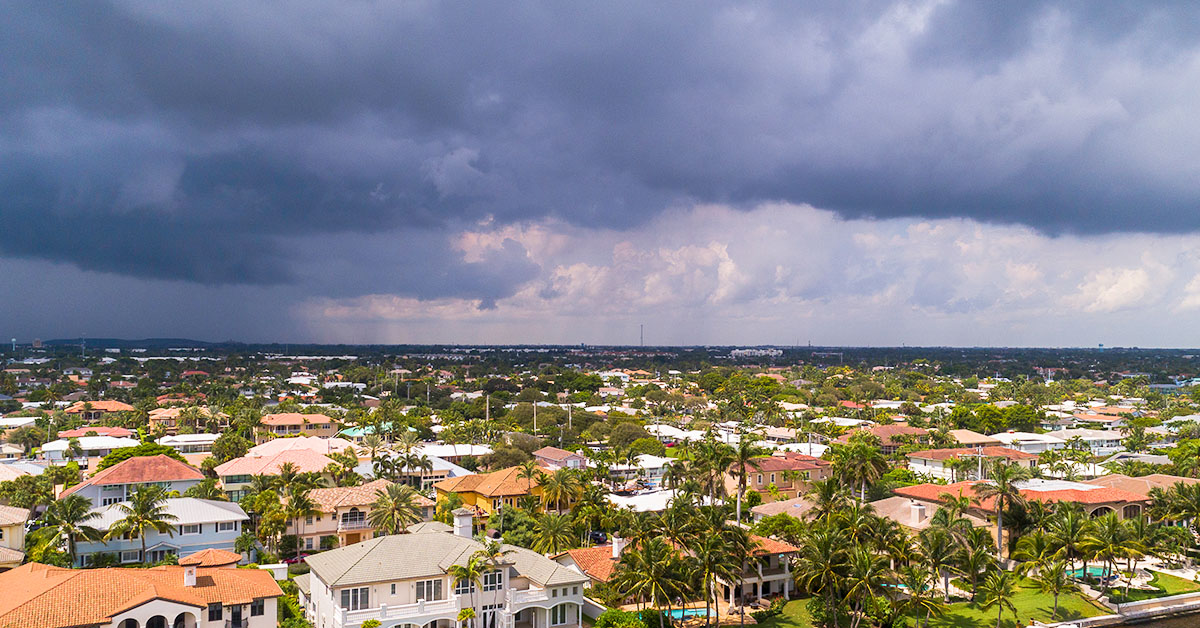
Preventing Water Damage: Tips for Homeowners During Storm Season
August 28, 2024 | By DriRiteStorm season brings the risk of heavy rains, flooding, and ultimately, water damage to homes. For homeowners, taking proactive steps to safeguard their property can make a significant difference in preventing costly damage and ensuring peace of mind. At Dririte Emergency Restoration Services, we understand the challenges that storm season presents. Here are some practical tips to help you protect your home from water damage.
1. Inspect and Maintain Your Roof:
Your roof is your home’s first line of defense against the elements. Regularly inspect it for signs of wear and tear, such as missing or damaged shingles, cracks, or leaks. Addressing these issues promptly can prevent water from seeping into your home during heavy rains. Consider scheduling a professional roof inspection before storm season begins to ensure everything is in top condition.
2. Clean and Repair Gutters and Downspouts:
Clogged gutters and downspouts can cause water to overflow and pool around your home’s foundation, leading to water damage and potential structural issues. Make sure to clean out leaves, debris, and dirt from your gutters regularly. Ensure that downspouts are directing water away from your home’s foundation and consider extending them if necessary.
3. Windows, Doors, and Cracks:
Water can easily enter your home through unsealed windows, doors, and cracks in the foundation or walls. Inspect these areas and apply weather stripping, caulk, or sealant as needed. Pay special attention to basement windows, which are more prone to leaks. Sealing these potential entry points can help keep water out during heavy storms.
4. Install a Sump Pump:
If your home has a basement, a sump pump is an essential tool for preventing water damage. It automatically pumps out water that accumulates in a sump basin, preventing flooding. Ensure that your sump pump is in good working condition before storm season, and consider investing in a battery backup system in case of power outages.
5. Create Proper Drainage Around Your Home:
Poor drainage can lead to water pooling around your home’s foundation, increasing the risk of water infiltration. Make sure that the ground slopes away from your home, allowing water to flow away from the foundation. You can also install French drains or other drainage systems to redirect water away from your property.
6. Consider Installing Flood Barriers:
in areas prone to flooding, installing flood barriers can provide an additional layer of protection. These barriers can be placed around doors, windows, and other vulnerable areas to prevent water from entering your home. There are various types of flood barriers available, from sandbags to more advanced, reusable options.
7. Keep an Eye on Weather Forecasts:
Staying informed about upcoming weather conditions is key to preventing water damage. If heavy rains or storms are predicted, take extra precautions, such as moving valuables to higher ground, securing outdoor furniture, and checking that all preventative measures are in place. Early preparation can make a significant difference when a storm hits.
Know What to Do If Water Damage Occurs: Despite all precautions, water damage can still happen. In such cases, it’s important to act quickly. Turn off the electricity in affected areas, remove valuable items from the water’s path, and start drying out the area as soon as possible.
Contact Dririte Emergency Restoration Services for professional assistance with water extraction, drying, and restoration to prevent further damage and mold growth.
Protect Your Home with Dririte Emergency Restoration Services
At Dririte, we’re dedicated to helping homeowners protect their properties from water damage. Storm season can be unpredictable, but with the right precautions, you can minimize the risk to your home. If you experience water damage, our team of experts is ready to respond 24/7 with emergency restoration services.
Contact us today to learn more about how we can help safeguard your home. By taking these proactive steps, you can better prepare your home for the challenges of storm season, keeping it safe, dry, and secure.
